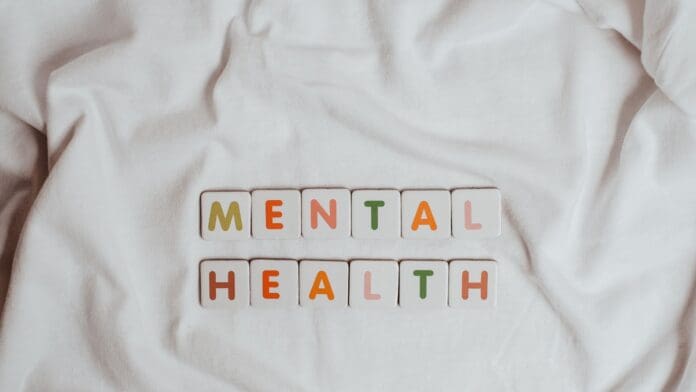As we navigate the complexities of virtual connections, the thin line between online engagement and its effects on our psychological well-being becomes increasingly blurred. This article delves into the multifaceted relationship between social media usage and its implications on mental health, from the anxiety triggered by constant connectivity to the shaping of self-esteem and body image in the digital age. We explore the rise of social media addiction, the harrowing experiences of cyberbullying, and the subtle yet profound influence of social comparison leading to depression. Moreover, we shed light on strategies for managing screen time effectively, fostering a healthier relationship with social media, and recognizing the potential for positive community building and support within these platforms. Through a comprehensive analysis and practical tips, we aim to offer solace and guidance for those seeking to find balance in their digital lives, ensuring a path towards improved mental well-being in the face of an ever-evolving online landscape.
Exploring the Connection Between Social Media Use and Anxiety
Experts at BestMind Behavioral Health Center say that the relationship between social media use and anxiety is complex and multifaceted, drawing attention from psychologists and mental health professionals worldwide. Research indicates that excessive use of social media can lead to heightened levels of anxiety, particularly among adolescents and young adults. This is often attributed to the constant comparison with others, fear of missing out (FOMO), and exposure to cyberbullying. Experts advise setting boundaries on social media use and focusing on real-life interactions to mitigate these effects.
Understanding the nuances of how social media platforms can trigger anxiety is crucial for developing coping strategies. For instance, endless notifications and pressure to maintain a particular image online can lead to persistent feelings of inadequacy and stress. Professional guidance often includes mindfulness practices and digital detoxes to help individuals regain control over their social media consumption and, by extension, their anxiety levels.
Moreover, the role of social media in shaping one’s perception of reality must be considered. The curated online lives often do not reflect reality, leading to distorted perceptions and unrealistic expectations. Mental health professionals emphasize the importance of fostering a healthy relationship with social media, recommending activities that boost self-esteem and promote a positive body image away from the digital world. Creating a balanced online and offline life is key to maintaining mental well-being in the digital age.
The Role of Social Media in Shaping Self-Esteem and Body Image
Exploring the intricate dynamics of social media, it becomes evident that platforms like Instagram and Facebook profoundly impact individual self-esteem and body image perceptions. A notable case study highlights how frequent exposure to idealized body images on social media can lead to body dissatisfaction among young women. This phenomenon is not confined to any single demographic; men and adolescents are equally susceptible to these influences, which can exacerbate feelings of inadequacy and foster negative self-perception. The constant comparison with highly curated and often unrealistic portrayals of beauty and success on these platforms can erode self-esteem, leading to a cycle of comparison and despair.
Social Media Addiction: Recognizing the Signs and Symptoms
Recognizing the signs and symptoms of social media addiction is crucial for maintaining mental health in the digital age. As we navigate the vast landscape of online platforms, it becomes increasingly important to identify when these tools stop serving us and instead start detracting from our well-being. Excessive use of social media can lead to a range of negative psychological effects, including anxiety, depression, and loneliness. Understanding the subtle yet impactful ways our online habits can transform into compulsive behaviors is essential.
Identifying social media addiction involves observing specific behaviors and emotional responses. Here are some key indicators:
- We spend significant time on social media platforms, even when it interferes with other vital activities or responsibilities.
- Feeling restless or anxious when unable to access social media, indicating withdrawal symptoms similar to those experienced in other forms of addiction.
- Using social media as a means to escape from negative feelings or realities, thereby avoiding addressing underlying issues that may require attention.
Addressing social media addiction requires a multifaceted approach. It’s not only about reducing screen time but also about fostering healthier relationships with our digital devices. Encouraging digital detoxes, setting specific times of the day for social media use, and finding alternative activities that promote mental well-being are all effective strategies. By recognizing the signs and symptoms of social media addiction, individuals can take proactive steps towards reclaiming control over their digital lives and, consequently, their mental health.
Navigating the Impact of Cyberbullying on Teen Mental Health
Understanding the profound effects of cyberbullying on adolescents requires a nuanced approach, as it directly correlates with significant declines in teen mental health. Studies have consistently shown that victims of cyberbullying exhibit a higher prevalence of depressive symptoms, anxiety, and a sense of isolation. The anonymity and pervasive nature of online platforms can exacerbate these feelings, making it difficult for teens to escape the harassment. It is crucial, therefore, to emphasize the importance of supportive networks and interventions that can mitigate these impacts. By fostering environments where teens feel safe to share their experiences, we can begin to counteract the negative spiral that cyberbullying often induces. Creating awareness and promoting digital literacy among parents and teens is a pivotal step toward understanding and combating the nuances of online harassment.
Moreover, the role of educational institutions and policymakers in addressing cyberbullying cannot be overstated. Implementing comprehensive anti-bullying policies and programs that include a focus on cyberbullying is essential. These initiatives should aim to punish the perpetrators and educate them about the consequences of their actions. Empowering teens with coping strategies and resilience-building techniques can significantly alleviate the mental health challenges posed by cyberbullying. Encouraging open dialogue about the dangers of online behavior and fostering a culture of empathy and respect online are key strategies in preventing cyberbullying and its detrimental effects on teen mental health. The collective effort of individuals, communities, and institutions is vital in creating a safer online environment for all adolescents.
The Influence of Social Comparison on Depression: A Social Media Perspective
Social media platforms have become arenas where individuals frequently engage in social comparison, often leading to negative impacts on mental health. Studies have shown that constant exposure to the highlight reels of others’ lives can significantly lower self-esteem and increase feelings of depression. This phenomenon is particularly pronounced among adolescents and young adults, the most active social media users. The curated nature of content shared on platforms like Instagram and Facebook presents an unrealistic standard of living, success, and beauty, which is difficult for many users to achieve or replicate in their own lives.
Research conducted by the University of Pennsylvania in 2018 revealed a direct correlation between time spent on social media and increased feelings of loneliness and depression. Participants who limited their social media usage to 30 minutes a day reported significant reductions in loneliness and depression levels compared to those who did not. This study underscores the importance of moderation in social media use. Comparison tables from this research highlight that users spending over three hours a day on social media platforms like Snapchat, Instagram, and Facebook had a 27% higher risk of depression than those who used them for less than 30 minutes.
Effective strategies to mitigate the negative effects of social comparison on social media include:
- Promoting digital literacy.
- Encouraging users to cultivate a mindful approach to social media consumption.
- Fostering environments that support authenticity and vulnerability.
For instance, platforms could implement features that allow users to control the content they see, thereby reducing the prevalence of unrealistic comparisons. Additionally, educational programs that teach users about the curated nature of social media content can help adjust expectations and reduce social comparison’s impact on mental health.
Strategies for Managing Screen Time and Improving Mental Well-being
Managing screen time effectively is crucial for enhancing mental well-being in the digital age. Establishing healthy boundaries is essential to mitigate the adverse effects of prolonged social media use. Here are some strategies to consider:
- Set specific times for checking social media platforms to avoid constant scrolling and ensure time is allocated efficiently throughout the day.
- Utilize apps or tools that monitor and limit screen time to remain conscious of digital consumption and encourage more offline activities.
- Engage in digital detoxes periodically by allocating days when you significantly reduce or eliminate social media use. This will allow your mind to rest and recharge.
- Replace some screen time with alternative activities promoting mental health, such as physical exercise, reading, or leisure time in nature.
- Ensure that face-to-face interactions are regularly conducted, as personal connections can greatly enhance emotional well-being and reduce the feelings of isolation often exacerbated by social media.
By implementing these strategies, individuals can take significant steps towards maintaining a healthier balance between digital and real-world interactions, ultimately improving their mental health.
The Positive Aspects of Social Media: Building Community and Support
Despite the prevalent discourse surrounding the potential harms of social media, it’s crucial to acknowledge its capacity to foster meaningful connections and support networks. Social media breaks down geographical barriers, enabling individuals from diverse backgrounds to share experiences, advice, and encouragement. This virtual support system is particularly beneficial for those seeking community in niche interests or in times of isolation, such as during illness or when dealing with specific life challenges. Finding and connecting with a community that shares similar interests or struggles can significantly enhance feelings of belonging and support, contributing positively to an individual’s mental health.
Moreover, social media platforms have become instrumental in raising awareness and reducing the stigma around mental health issues. Through campaigns, shared stories, and open discussions, these platforms offer a space for individuals to learn, empathize, and seek help in a less intimidating environment. The visibility of mental health conversations on social media has not only educated the public but also empowered those affected to speak out and seek support. The conclusion is clear: when used mindfully, social media can be a powerful tool in building supportive communities and promoting a more inclusive society where mental health is openly discussed and prioritized.
Towards a Healthier Relationship with Social Media: Practical Tips and Resources
Establishing boundaries is crucial for maintaining a balanced life in the digital age. Experts suggest setting specific times for checking social media to avoid constant scrolling, which can lead to increased anxiety and depression. Implementing app limits on your phone can also help manage online time. Furthermore, engaging in offline activities such as reading, sports, or spending time with loved ones can significantly improve mental health and reduce the reliance on digital validation. These strategies foster a healthier lifestyle and encourage more meaningful connections with the world around us.
Mindfulness practices have been shown to mitigate the negative effects of social media on mental health. Techniques such as meditation and deep-breathing exercises can help individuals stay present and reduce feelings of overwhelm that often accompany the fast-paced nature of online platforms. Additionally, curating a positive social media feed by following accounts that inspire and uplift rather than induce comparison or negativity can transform one’s experience on these platforms. Seeking professional help when social media use becomes problematic is also advised, as therapists can provide personalized strategies for navigating the complexities of the digital world.










